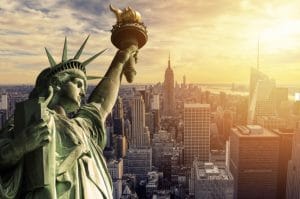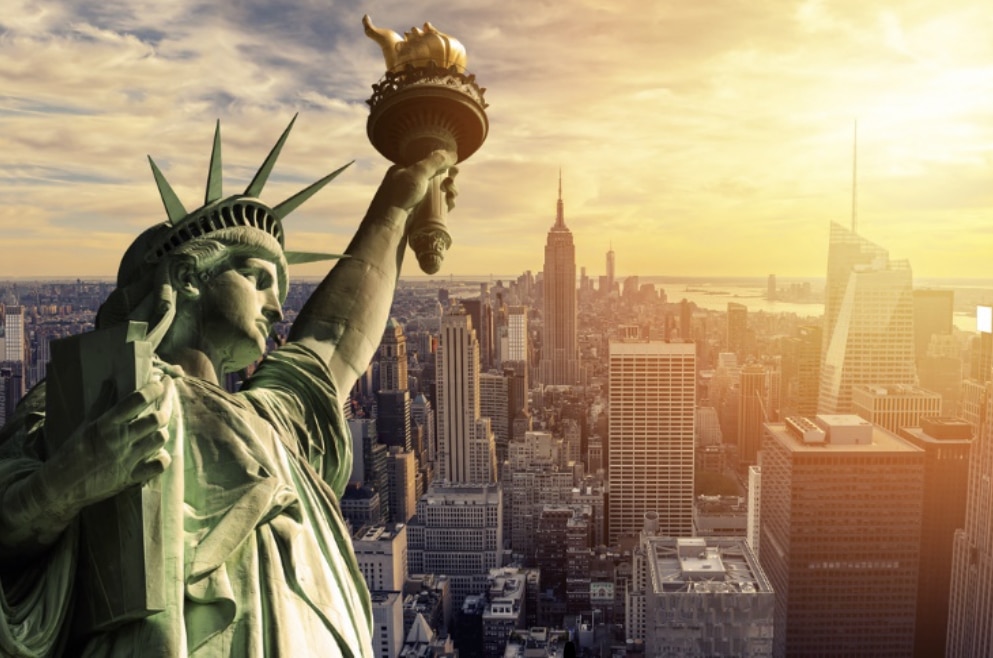
When they got to Ellis Island, they were incarcerated in separate prison-like housing until they could prove on paper that they had gainful employment. Communications took forever in those days, so they remained imprisoned for several months. Finally, the word came from San Francisco that John was offered a job cleaning stables at the Sutro Stables that housed the San Francisco Police Department’s horses. John knew horses, but wouldn’t leave until he secured a job for Nellie as a washerwoman in a boarding house in San Francisco.
When they got to San Francisco, they were met with open hostility and prejudice against Irish immigrants because they would take lowly jobs at very low wages. Further, they were viewed as unamerican “papists” because of their Catholic religion which emanated from the Pope in Rome.
In the years that followed, they scraped together enough to make a down payment on their own boarding house. They studied the constitution diligently and became naturalized citizens earning the right to vote. John worked his way up in the stable to become the head horseman. Nellie worked managing room rentals and provided cleaning services for transients.
In 1906, an 8.6 earthquake and ensuing fire destroyed the city. The Sutro stable caught fire. All of the horses perished except the mayor’s prized Percherons. In the confusion and calamity, John had the presence of mind to save them. The mayor asked John how he could possibly thank him. John replied, “Make me a beat cop in the Irish ghetto,” which was the Mission District at the time and the place John and Nellie called home.
John served as a beat cop, walking the streets of the Mission District for 40 years, serving the people of the Mission, keeping the peace, fighting crime, helping in the emergencies, and putting his life on the line. He saw the reconstruction of the City. He attended the Panama Pacific Exhibition in 1915. The Palace of Fine Arts is the only building left standing from the World’s Fair that showed the world that San Francisco was back in business and now; through the newly opened Panama Canal.
John saw World War I and the influx of Italian immigrants that came into the Mission immediately following. He saw prohibition force average Americans to break the law. He saw the Great Depression, the Repeal of Prohibition and World War II. All that time, he saw wave after wave of immigrants come into the Mission and work their way into better lives.
During that time, they had three children. Two died in childbirth. One survived. The survivor, Michael’s father; John Charles Houlihan, was a public servant. Michael’s father worked with others to develop containerized shipping which revolutionized the shipping industry and reduced what they used to call shrinkage, or pilfering by dock workers. The containers were now locked. This alone cut the cost of world commerce significantly. Several container ports sprang up all over the world in the 1970s and ’80s. Shipping was now efficient, safe, and dependable. It became a standard.
Immigrants Don’t Take Citizenship for Granted
Michael grew up spending summers with his Irish grandfather who constantly reminded him of the great opportunity the United States offered to get ahead. He told Michael that hard work paid off in America. He extolled the virtues of American citizenship and expressed deep gratitude for his chance to get ahead in the United States until the day he died.
John and his son gave back to the country in different ways, but their lives improve the lives of many Americans. Think of all the jobs that containerized shipping created, and for that matter, Barefoot Wine.
Immigrants are the backbone of the economy and are why America is so “Great”! Let’s welcome the immigrants who want to work and show their appreciation for having been given the chance. In order to become naturalized citizens and gain the right to vote, they have to learn about the constitution, the divisions of government; and why they exist as well as the checks and balances they provide. Native-born Americans have no such requirement. They can just vote without that knowledge, or not even vote at all. Immigrants generally don’t take citizenship for granted. They understand our government and they vote.
Let’s rethink the value of immigrants and let’s all vote! Democracy is not something immigrants take for granted. Why should we?
Who We Are

Michael Houlihan and Bonnie Harvey co-authored the New York Times bestselling business book, The Barefoot Spirit: How Hardship, Hustle, and Heart Built America’s #1 Wine Brand. The book has been selected as recommended reading in the CEO Library for CEO Forum, the C-Suite Book Club, and numerous university classes on business and entrepreneurship. It chronicles their humble beginnings from the laundry room of a rented Sonoma County farmhouse to the board room of E&J Gallo, who ultimately acquired their brand and engaged them as brand consultants. Barefoot is now the world’s largest wine brand.
Beginning with virtually no money and no wine industry experience, they employed innovative ideas to overcome obstacles, create new markets and forge strategic alliances. They pioneered Worthy Cause Marketing and performance-based compensation. They built an internationally bestselling brand and received their industry’s “Hot Brand” award for several consecutive years.
They offer their Guiding Principles for Success (GPS) to help entrepreneurs become successful. Their book, The Entrepreneurial Culture: 23 Ways To Engage and Empower Your People, helps corporations maximize the value of their human resources.
Currently they travel the world leading workshops, trainings, & keynoting at business schools, corporations, conferences. They are regular media guests and contributors to international publications and professional journals. They are C-Suite Network Advisors & Contributing Editors. Visit their popular brand building site at www.consumerbrandbuilders.com.
To make inquiries for keynote speaking, trainings or consulting, please contact sales@thebarefootspirit.com.







